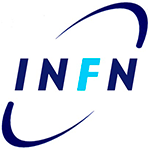Ph.D. Student Uesli Alushi
Optimality and noise resilience of critical quantum sensing
We compare critical quantum sensing to passive quantum strategies to perform frequency estimation, in the case of single-mode quadratic Hamiltonians. We show that, while in the unitary case both strategies achieve precision scaling quadratic with the number of photons, in the presence of dissipation this is true only for critical strategies. We also establish that working at the exceptional point or beyond threshold provides sub-optimal performance. This critical enhancement is due to the emergence of a transient regime in the open critical dynamics, and is invariant to temperature changes. When considering both time and system size as resources, for both strategies the precision scales linearly with the product of the total time and the number of photons, in accordance with fundamental bounds. However, we show that critical protocols outperform optimal passive strategies if preparation and measurement times are not negligible. Our results are applicable to a broad variety of critical sensors whose phenomenology can be reduced to that of a single-mode quadratic Hamiltonian, including systems described by finite-component and fully-connected models.
U. Alushi, W. Górecki, S. Felicetti, R. Di Candia: “Optimality and Noise-Resilience of Critical Quantum Sensing”, https://doi.org/10.48550/





